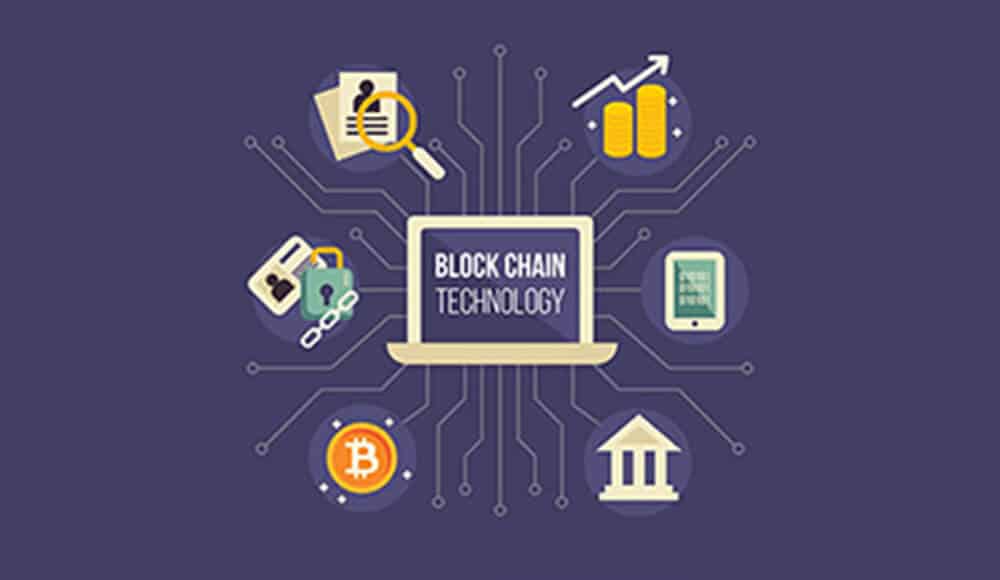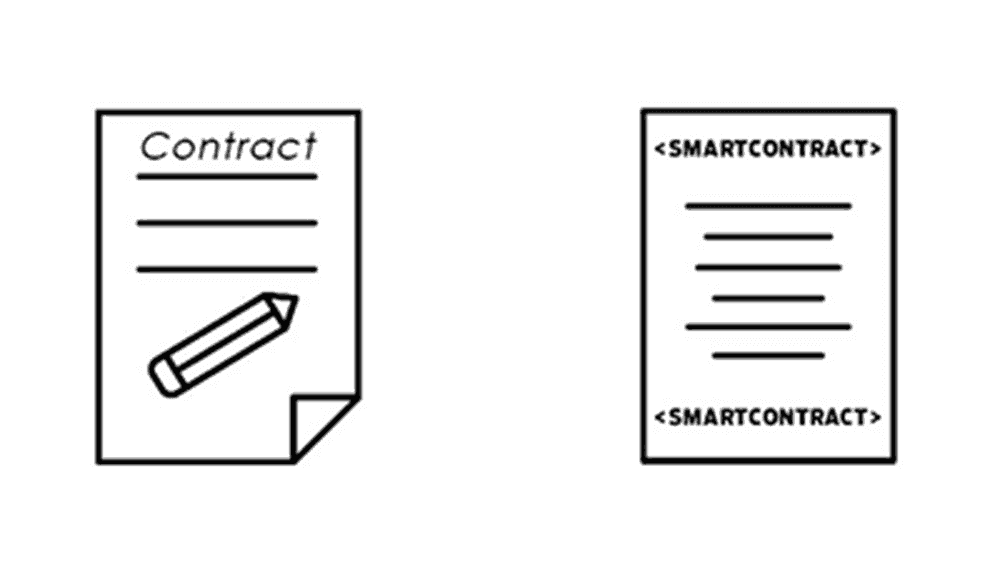
At Siddhatech, we offer a comprehensive Smart Contract development services. As such, in this post we’ll take a look at; what is a Smart Contract, how do Smart Contracts work, what are its benefits and the various areas where we can make use of Smart Contracts. So, let’s get started to see how Blockchain Smart Contracts help individuals and businesses.
A] What Are Smart Contracts?

B] How Do Smart Contracts Work?
Smart Contract is a Blockchain application, created with the help of Ethereum, which is a popular Blockchain platform. As stated above, just like a standard legal contract (on paper) that outlines the term of the agreement between two individuals or organizations, Smart Contracts does the same albeit it uses programming languages such as Solidity, Python or GoLang.
It works on a condition-based principle IF-WHEN-THEN and one of the classic Ethereum Smart Contract examples is when buying a property.
Here, the involved parties can set conditions like;
There is no limit to the conditions/terms you can include in your Smart Contracts. And, it’s only when these set conditions are successfully met, the Smart Contracts would execute and validate your transaction.
Moreover, since these Contracts are stored in a distributed system, both parties can interact with each other in real-time without the involvement of a third-party. This would save a considerable amount of time and money. In addition, these encrypted contracts are stored in a decentralized ledger which ensures that it can’t be deleted, thus eliminating the chance of fraud. It also offers the involved parties the option of anonymity if that’s what they require.
C] Blockchain Network Using Smart Contracts
Bitcoin
As one of the popular Blockchain platforms, Bitcoin can be used to create Smart Contracts. One example is Rootstock (RSK), which is a two-way pegged sidechain to Bitcoin. This was specifically designed to enable smart contract functionality. However, though Bitcoin offers a suitable programming language for creating custom Smart Contracts (payment channels, multi-signature accounts, escrows, and time locks), it is not as programmable or extensible as Ethereum.
Ethereum
An open-source platform designed and created to support Smart Contracts, Ethereum is the most notable smart contract framework. Programmed in the Solidity language, Ethereum is a decentralized and global platform that allows developers to write codes for Smart Contracts that can be accessed from anywhere without any hassle of third-party interference, fraud or downtime. Plus, one can store transactions between people, transactions involving Smart Contracts, among others, easily on the Ethereum blockchain database.
D] What Are the Advantages of Smart Contracts?
Accuracy
Since Blockchain Smart Contracts are a self-executing system, it needs to be precise or it might result in an error while executing. This ensures high accuracy. Also, by shifting to Smart Contracts, you’d be able to prevent human errors that come from manually filling out forms.
Speed
As a distributed network that works online, Smart Contracts eliminate the need of manually processing each document. This speeds up the execution process, which not only helps save time but also results in quicker decision making.
Transparency
All terms and conditions included in a Smart Contract are thoroughly checked and agreed upon by all involved parties before the contract is coded. This ensures total transparency at all times. It also eliminates any dispute that may arise later on.
Savings
Without the need to involve any third-party, middlemen or intermediary, individuals and business organizations would be able to significantly reduce operational and transactional costs. Thus, saving a lot of money in return.
Time-efficient
Greater accuracy, speed and security ensures that all transaction processes get done at a faster rate. This improves time efficiency, enabling you to complete high-value projects swiftly.
Security
Smart Contracts offer the highest level of safety standards as it makes use of the best-in-class data encrypted technology. This prevents hacking and offers protection from all threats.

Paper Free
Smart Contracts are also eco-friendly, as by going digital you’d be able to
Data Storage
Smart Contracts Blockchain application offers easy storage & backup feature that ensures all records of your contracts are safely stored and can be accessed anytime you want. This prevents data loss and in case the data does get lost (which is very very rare) it offers you a simple restore option.

Trust
Since there is no way to delete or alter information in Smart Contracts once it’s encrypted, it fosters a higher level of trust between the concerned parties. There is also transparency and easy access to all records at all times as it is stored on a distributed ledger, which helps to further encourage confidence between all.
Clear Communication
With Smart Contracts, you need to be specific and detailed while establishing terms and conditions. This leaves little room for misinterpretation at a later stage. Thus, helping you forge an agreement based on a clear and direct communication.
E] What Are Smart Contracts Used For?
Smart Contracts Blockchain application can be used for varied purposes by individuals, business organisations and for the Internet of Things (IoT). Mentioned below are a few areas where Smart Contracts are currently being used for.
1. Smart Contracts Applications for Healthcare
2. Smart Contracts Applications for Real Estate
3. Smart Contracts Applications for Government
One area where Smart Contracts can be a great aid for the Government is the overhauling of the Voting systems. Smart Contracts applications like FollowMyVote which works on Blockchain technology offers a secure online voting platform ensuring accountability and transparency during elections.
4. Smart Contracts Applications for Insurance
5. Smart Contracts Applications for Supply Chain
6. Smart Contracts Applications for Management
7. Smart Contracts Applications for Automobile
8. Smart Contracts Applications for Banking
9. Smart Contracts Applications for Legal Issues
10. Smart Contracts Applications for ICOs
FAQs Section
Smart Contracts was invented in the early 1990s by Nick Szabo. He is an American computer scientist, lawyer, and cryptographer, who first coined this term. He also invented a decentralized virtual currency called “Bit Gold” in 1998, approx 10 years before the invention of Bitcoin (in 2008).
While there is no exact count of how many Smart Contracts are out there, according to Coindiligent, the count of Smart Contracts deployed on Etherum includes over 1,000,000, which holds a total of over 100,000,000 ETH.
When you take into consideration all of the above-mentioned advantages of Smart Contracts, the importance of it gets clearly highlighted. From eliminating middlemen and speeding up various processes to lending top-notch security, greater transparency and optimal data storage, early adoption of Smart Contracts can help businesses save a lot of time and money in the long run while effectively dealing with the issue of mistrust, delays, and manual errors.
Some of the programming languages that are used by developers to write Smart Contracts are Solidity, Javascript, C++, Golang, SQL, and Java. Several other programming languages can also be used. However, the above-mentioned names are high-level programming languages used for Smart Contracts. Go here to read about each programming language.
While Bitcoin can execute simple Smart Contracts, it does not support the execution of complex Smart Contracts. Also, more often than not, designing and executing Smart Contracts with Bitcoin can be costly and challenging, which is the reason why Ethereum Smart Contracts are so popular.
Ethereum is a decentralized platform that runs Smart Contracts. It was specially created for developing Smart Contracts and provides a decentralized virtual computer [Ethereum Virtual Machine (EVM)], which enables developers to create their own Smart Contracts that are executed based on the rules programmed by the developer. Read here to know more.
Smart Contracts are technically stored on the Blockchain itself. When Smart Contracts are deployed, they get compiled into byte code, and this code is stored on the ledger on the Blockchain. This makes the contract easily available to individuals who want to make a transaction. Also, apart from the Blockchain, Smart Contracts are available on the deployed machine.